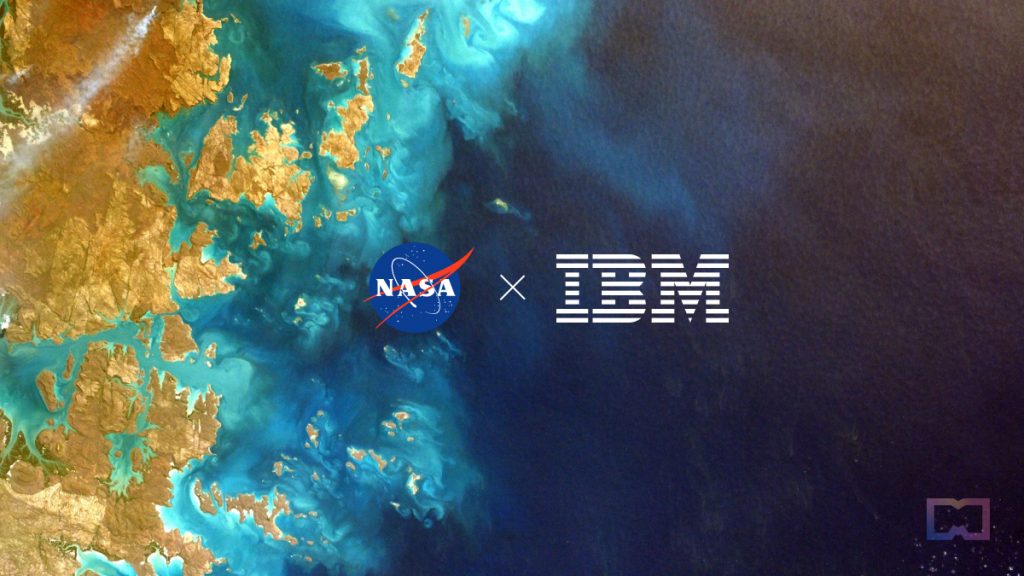IBM and NASA Join Forces to Research Impact of Climate Change with AI

In Brief
NASA will be using IBM’s artificial intelligence technology to analyze its massive amounts of geospatial and science data.
Both organizations will also be co-creating AI foundation models to analyze petabytes of text and remote-sensing data.
The AI foundation models will simplify the process of building AI applications tailored to specific questions and tasks about climate change.

IBM and NASA’s Marshall Space Flight Center are teaming up to research the impact of climate change with artificial intelligence (AI). In this collaboration, NASA will be using IBM’s AI foundation model technology for NASA’s Earth-observing satellite data.
IBM’s AI foundation model is a large AI model trained on a broad set of unlabeled data. It can be used for various tasks and can apply information about one situation to another. Both IBM and NASA are co-creating foundation models to analyze petabytes of text and remote-sensing data.
IBM and NASA will build two foundational models. The first one is a natural language processing (NLP) model trained on nearly 300,000 Earth science journal articles, making it easier for researchers to discover new knowledge.
Once fully trained, the model will use IBM’s open-source, multilingual question-answering system to answer questions like “How will aerosols impact climate change?” Eventually, the model will provide an answer with a summary of the most recent cited papers, with links and any relevant context.
The foundation model contains one of the largest AI workloads trained on Red Hat’s OpenShift software to date, said Tushar Katarki, who heads product management for Open Shift.
The second model will be trained on NASA’s Harmonized Landsat Sentinel-2 (HLS) dataset, a record of land-use changes captured by Earth-orbiting satellites. The goal is to simplify the process of building AI applications that can analyze large amounts of satellite data to detect natural disasters and track changes to vegetation and wildlife habitat, ultimately helping researchers provide critical analysis of our planet’s environmental systems.
“It won’t just be NASA that benefits; other agencies and organizations will too,” said Rahul Ramachandran, a senior research scientist at NASA’s Marshall Space Flight Center. “We hope that these models will make information and knowledge more accessible to everyone and encourage people to build applications that make it easier to use our datasets to make discoveries and decisions based on the latest science.”
This collaboration with IBM comes as NASA prepares to launch its Year of Science, which will feature events throughout the year to promote data and AI-model sharing to accelerate scientific discovery. It is also part of NASA’s broader push to make data, code, and AI models available to everyone through its Open-Source Science Initiative.
Related posts:
Disclaimer
In line with the Trust Project guidelines, please note that the information provided on this page is not intended to be and should not be interpreted as legal, tax, investment, financial, or any other form of advice. It is important to only invest what you can afford to lose and to seek independent financial advice if you have any doubts. For further information, we suggest referring to the terms and conditions as well as the help and support pages provided by the issuer or advertiser. MetaversePost is committed to accurate, unbiased reporting, but market conditions are subject to change without notice.
About The Author
Cindy is a journalist at Metaverse Post, covering topics related to web3, NFT, metaverse and AI, with a focus on interviews with Web3 industry players. She has spoken to over 30 C-level execs and counting, bringing their valuable insights to readers. Originally from Singapore, Cindy is now based in Tbilisi, Georgia. She holds a Bachelor's degree in Communications & Media Studies from the University of South Australia and has a decade of experience in journalism and writing. Get in touch with her via cindy@mpost.io with press pitches, announcements and interview opportunities.
More articles

Cindy is a journalist at Metaverse Post, covering topics related to web3, NFT, metaverse and AI, with a focus on interviews with Web3 industry players. She has spoken to over 30 C-level execs and counting, bringing their valuable insights to readers. Originally from Singapore, Cindy is now based in Tbilisi, Georgia. She holds a Bachelor's degree in Communications & Media Studies from the University of South Australia and has a decade of experience in journalism and writing. Get in touch with her via cindy@mpost.io with press pitches, announcements and interview opportunities.





















































